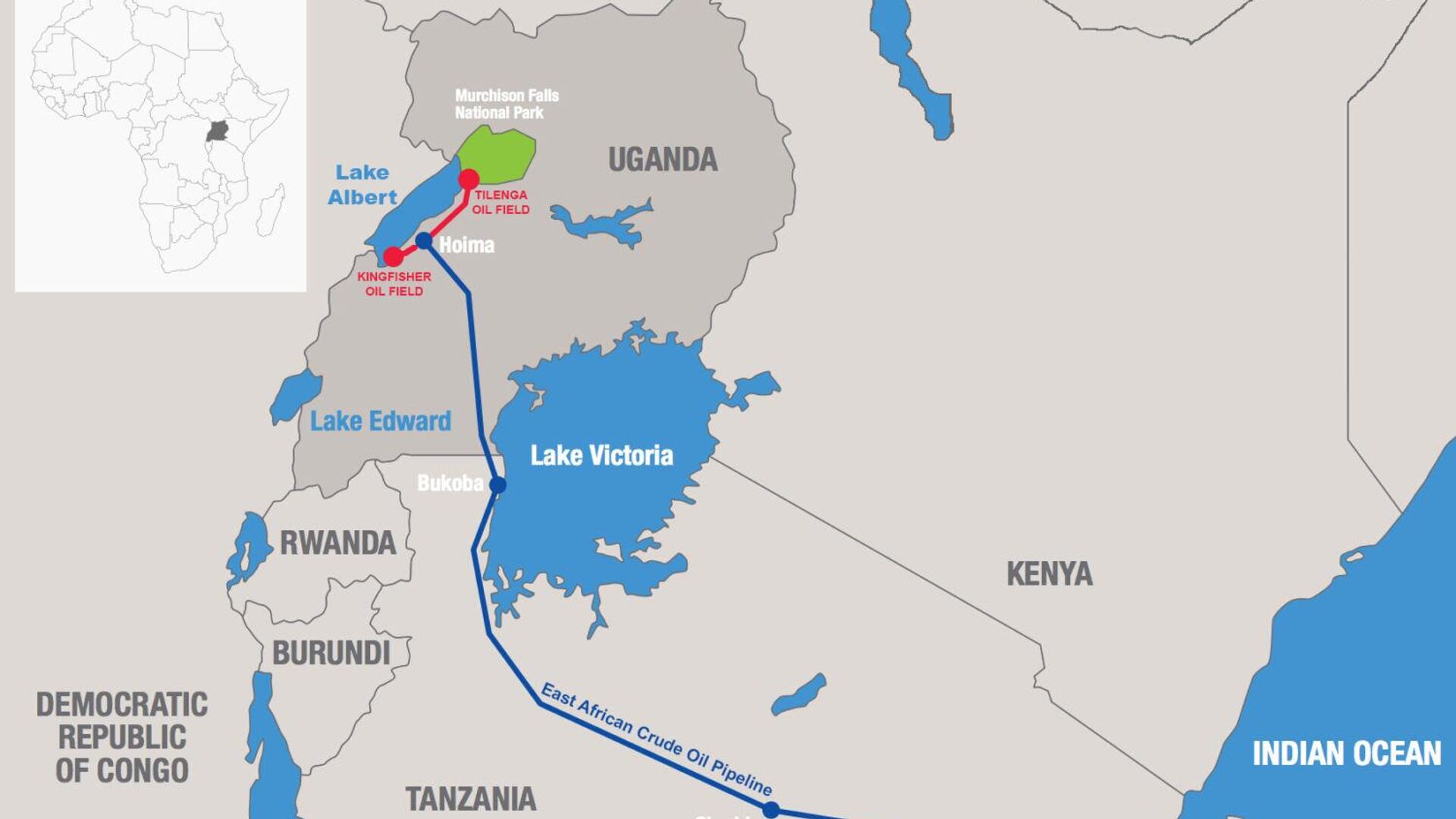https://sputnikglobe.com/20221024/uganda-blasts-eus-hypocrisy-amid-pipeline-spat-1102586840.html
Uganda Blasts EU's 'Hypocrisy' Amid Pipeline Spat
Uganda Blasts EU's 'Hypocrisy' Amid Pipeline Spat
Sputnik International
Uganda and Tanzania are completing preparations for the construction of a massive 1,440 km oil pipeline which will take crude oil from fields in Lake Albert to... 24.10.2022, Sputnik International
2022-10-24T13:47+0000
2022-10-24T13:47+0000
2023-02-09T11:44+0000
africa
energy
oil pipeline
uganda
tanzania
east africa
oil
european union (eu)
https://cdn1.img.sputnikglobe.com/img/07e6/0a/18/1102586681_0:60:1500:904_1920x0_80_0_0_4ecd105f86000df418df3d53fd8b745b.jpg
Brussels’ campaign of diplomatic pressure on Uganda and Tanzania aimed at stopping the East African Crude Oil Pipeline (EACOP) amounts to pure “hypocrisy,” and constitutes an attempt by wealthy countries to keep developing nations down, Elison Karuhanga, a member of Uganda’s Chamber of Mines and Petroleum, has said.Karuhanga’s sentiments echoed comments made by Ugandan President Yoweri Museveni last month, with the president slamming EU politicians seeking to meddle in Uganda and Tanzania’s affairs as “insufferable,” “shallow,” and “egocentric.”Museveni is the latest African leader to question the European Union’s attempts to smother the continent’s energy projects, with others pointing out that the entirety of Sub-Saharan Africa produces just 2.5 percent of the world’s carbon emissions, compared to up to 17 percent for Europe (including 9.8 percent from the EU-28).According to International Renewable Energy Agency data, a whopping 92 percent of Uganda’s energy supply is currently met by renewables, with a similarly high rate of 84 percent in neighboring Tanzania. By comparison, just 21 percent of the European Union’s energy needs are met by renewable energy sources, with that figure expected to drop as members fire up coal power plants and other polluting energy sources after cutting themselves off from cheap and comparatively environmentally-friendly Russian natural gas earlier this year.The European Parliament adopted a resolution last month condemning EACOP, calling on “Ugandan and Tanzanian authorities, as well as the project promoters and stakeholders, to protect the environment and put an end to the extractive activities in protected and sensitive ecosystems, including the shores of Lake Albert.” Brussels urged TotalEnergies – the largest stakeholder in the project, to hold off on construction for one year to study the feasibility of an alternative route.European officials and local activists have expressed concerns that the pipeline could displace tens of thousands of local residents and farmers, endanger local wildlife and water supplies, and generate up to 34 million tons of carbon dioxide emissions each year once up and running (equivalent to Denmark’s annual CO2 output). The pressure campaign has prompted some companies affiliated with the project to pull out, with oil and gas insurance giant Allianz dropping out in April, citing “climate” concerns. Barclays Bank and Credit Suisse have refused to provide financing for the project.Tony Tiyou, the chief of Renewables in Africa, a UK-based clean energy company, said that "green energy" concerns must be balanced by pragmatic sensibilities over the needs of developing countries.Once completed in 2025, EACOP will pump up to 230,000 barrels of crude oil per day from the shores of Lake Albert in western Uganda to northeastern Tanzania’s Indian Ocean port. The project is expected to net Uganda between $1.5 and $3.5 billion a year (with the latter figure equivalent to up to three quarters of its current annual tax base), while Tanzania is expected to pocket up to $1 billion per year from the project.Standard Bank, a massive African banking and financial services group headquartered in Johannesburg, expects EACOP to help Uganda’s GDP to grow by double digits over the next three years, and double from $30 billion in 2022 to $60 billion by 2028.France’s TotalEnergies has a 62 percent stake in the $4 billion project, with the China National Offshore Oil Corporation also involved.In addition to earning transit income, the pipeline could help improve the region’s access to energy. Today, just 42 percent of Ugandans and 40 percent of Tanzanians have access to electricity.Along with EACOP, Ugandan and Tanzanian authorities are also working on the construction of a natural gas pipeline which would run parallel to the oil pipeline, and deliver liquefied natural gas to Uganda. The latter initiative is envisioned as a project that would improve the energy security of both nations, cut down on pollution caused by charcoal and firewood – which is used by 70 percent of Ugandans for their cooking needs, and slow deforestation.
https://sputnikglobe.com/20221001/western-imposed-green-agenda-would-cripple-africas-energy-security-energy-expert-warns-1101420605.html
https://sputnikglobe.com/20221021/europe-network-against-racism-denounces-borrells-attempt-to-apologize-for-garden-metaphor-1102515794.html
https://sputnikglobe.com/20221018/uganda-open-to-trading-with-russia-in-national-currencies---ambassador-1101994053.html
https://sputnikglobe.com/20221010/kenya-tanzania-to-fast-track-dar-es-salaam-mombasa-gas-pipeline-in-bid-to-cut-fuel-costs-1101700104.html
africa
uganda
tanzania
east africa
Sputnik International
feedback@sputniknews.com
+74956456601
MIA „Rosiya Segodnya“
2022
News
en_EN
Sputnik International
feedback@sputniknews.com
+74956456601
MIA „Rosiya Segodnya“
Sputnik International
feedback@sputniknews.com
+74956456601
MIA „Rosiya Segodnya“
energy, oil pipeline, uganda, tanzania, east africa, oil, european union (eu)
energy, oil pipeline, uganda, tanzania, east africa, oil, european union (eu)
Uganda Blasts EU's 'Hypocrisy' Amid Pipeline Spat
13:47 GMT 24.10.2022 (Updated: 11:44 GMT 09.02.2023) Uganda and Tanzania are completing preparations for the construction of a massive 1,440 km oil pipeline which will take crude oil from fields in Lake Albert to Tanzania’s Tanga Indian Ocean port. European Union officials have demanded that the project be scrapped, citing environmental, climate, and "human rights" concerns.
Brussels’ campaign of diplomatic pressure on Uganda and Tanzania aimed at stopping the East African Crude Oil Pipeline (EACOP) amounts to pure “hypocrisy,” and constitutes an attempt by wealthy countries to keep developing nations down, Elison Karuhanga, a member of Uganda’s Chamber of Mines and Petroleum, has said.
“Unlike wealthy nations which will remain wealthy even when their oil and gas revenue is removed, we cannot afford to gamble the future of Ugandan generations on hypotheticals,” Karuhanga
said.
Karuhanga’s sentiments echoed comments made by Ugandan President Yoweri Museveni last month, with the president slamming EU politicians seeking to meddle in Uganda and Tanzania’s affairs as “insufferable,” “shallow,” and “egocentric.”
Museveni is the
latest African leader to question the European Union’s attempts to smother the continent’s energy projects, with others pointing out that the entirety of Sub-Saharan Africa produces just 2.5 percent of the world’s carbon emissions,
compared to up to 17 percent for Europe (including 9.8 percent from the EU-28).
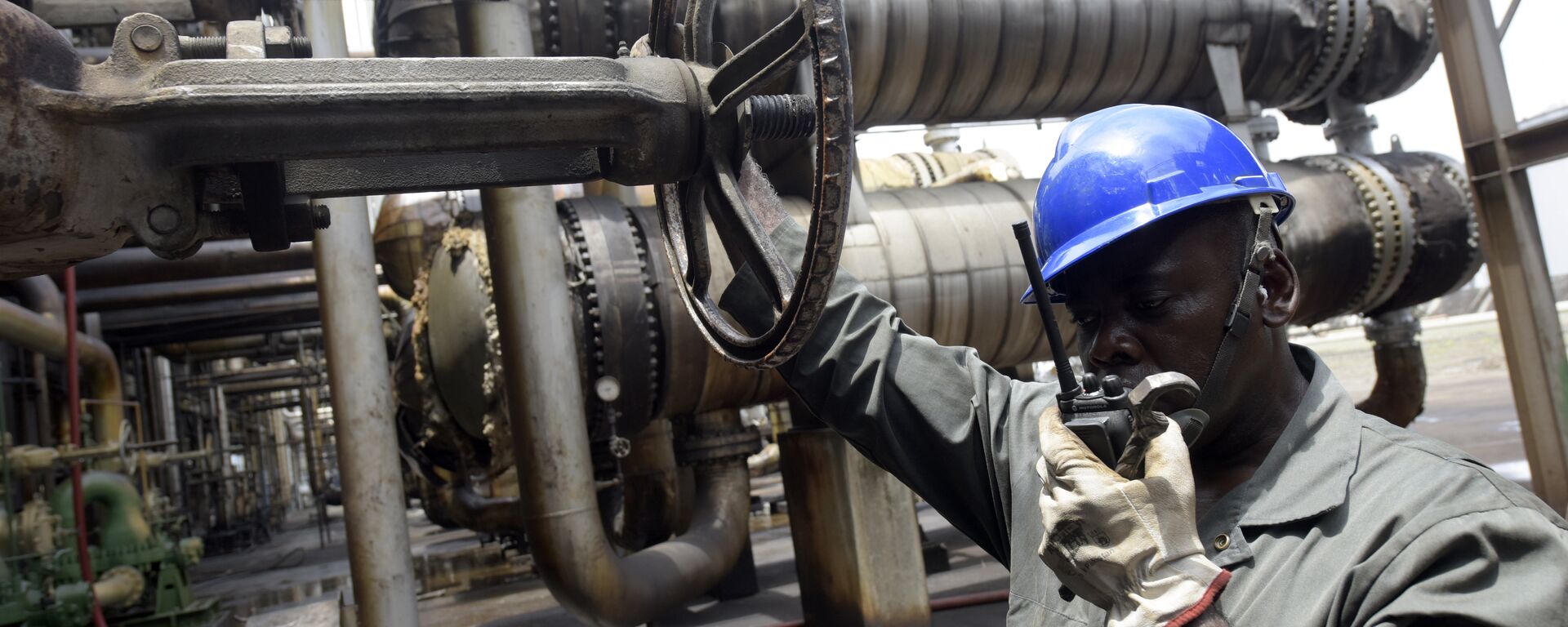
1 October 2022, 14:58 GMT
According to International Renewable Energy Agency data, a whopping
92 percent of Uganda’s energy supply is currently met by renewables, with a similarly high rate of
84 percent in neighboring Tanzania. By comparison, just
21 percent of the European Union’s energy needs are met by renewable energy sources, with that figure expected to drop as members fire up coal power plants and other polluting energy sources after cutting themselves off from cheap and comparatively environmentally-friendly Russian natural gas earlier this year.
The European Parliament adopted
a resolution last month condemning EACOP, calling on “Ugandan and Tanzanian authorities, as well as the project promoters and stakeholders, to protect the environment and put an end to the extractive activities in protected and sensitive ecosystems, including the shores of Lake Albert.” Brussels urged TotalEnergies – the largest stakeholder in the project, to hold off on construction for one year to study the feasibility of an alternative route.
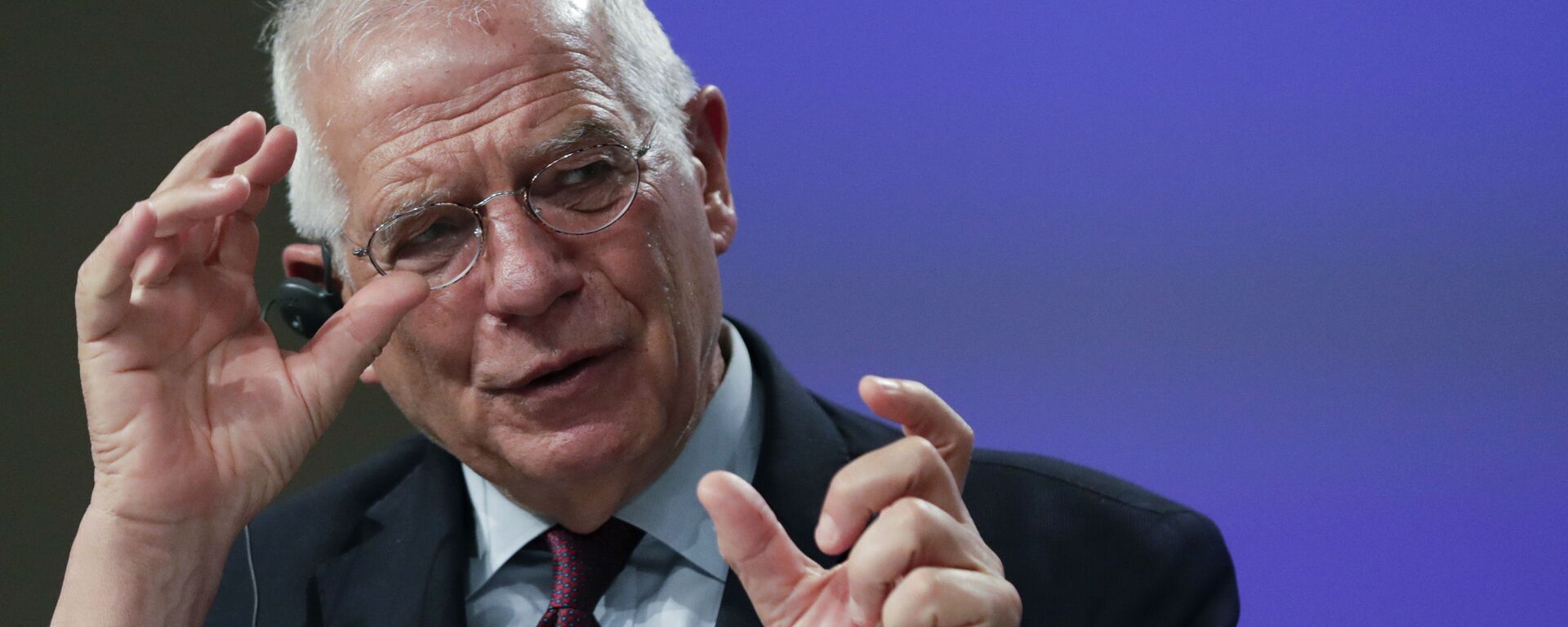
21 October 2022, 18:39 GMT
European officials and local activists
have expressed concerns that the pipeline could displace tens of thousands of local residents and farmers,
endanger local wildlife and water supplies, and generate up to 34 million tons of carbon dioxide emissions each year once up and running (equivalent to Denmark’s annual CO2 output). The pressure campaign has prompted some companies affiliated with the project to pull out, with oil and gas insurance giant Allianz dropping out in April, citing “climate” concerns. Barclays Bank and Credit Suisse have refused to provide financing for the project.
Tony Tiyou, the chief of Renewables in Africa, a UK-based clean energy company, said that "green energy" concerns must be balanced by pragmatic sensibilities over the needs of developing countries.
“I know we’re still going to need some fossil fuel because at the moment people need power in Africa and if they don’t have power, it will be a little bit difficult to lift people out of poverty. Solar and wind could be intermittent. You don’t have solar at night, for example, and wind doesn’t always blow when you need it. But people talk about an energy mix – a combination of different sources,” Tiyou said.
Once completed in 2025, EACOP will pump up to 230,000 barrels of crude oil per day from the shores of Lake Albert in western Uganda to northeastern Tanzania’s Indian Ocean port. The project is expected to net Uganda between $1.5 and $3.5 billion a year (with the latter figure equivalent to up to three quarters of its current annual tax base), while Tanzania is expected to pocket up to $1 billion per year from the project.
Standard Bank, a massive African banking and financial services group headquartered in Johannesburg, expects EACOP to help Uganda’s GDP to grow by double digits over the next three years, and double from $30 billion in 2022 to
$60 billion by 2028.
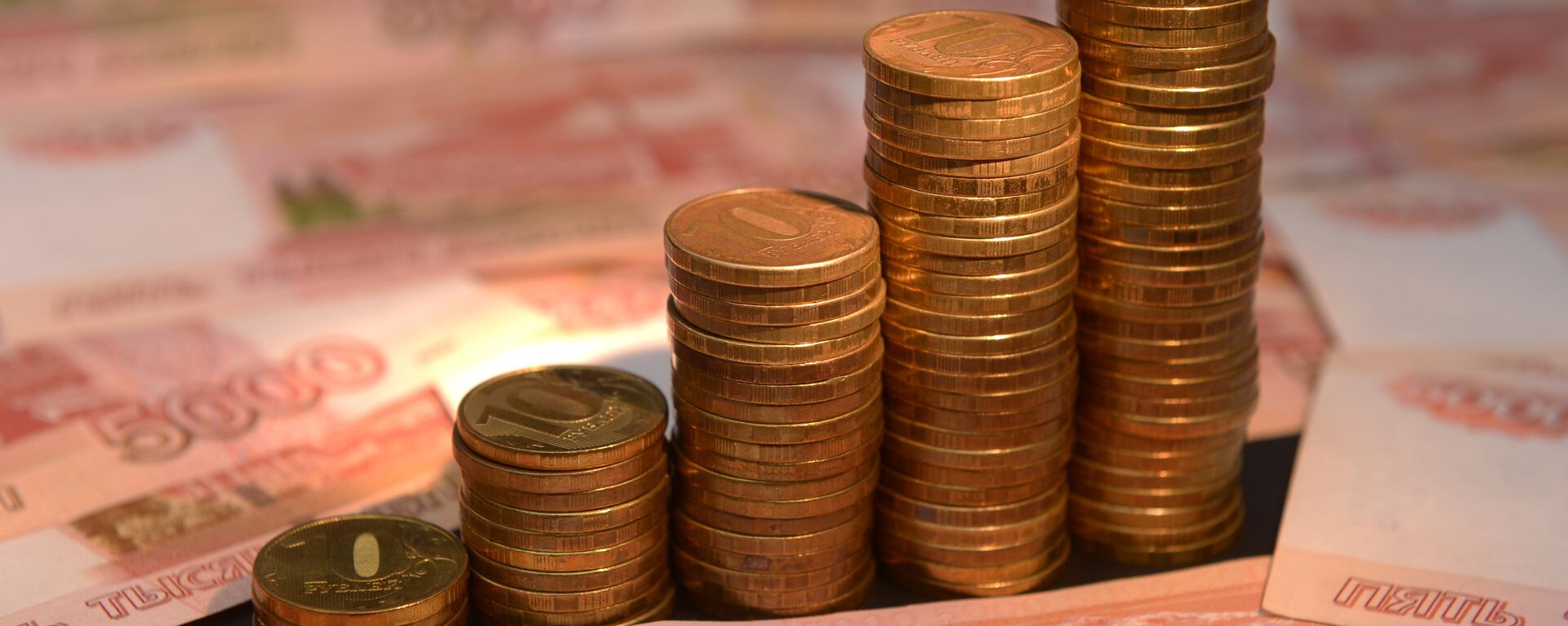
18 October 2022, 06:34 GMT
France’s TotalEnergies has a 62 percent stake in the $4 billion project, with the China National Offshore Oil Corporation also involved.
In addition to earning transit income, the pipeline could help improve the region’s access to energy. Today, just 42 percent of Ugandans and 40 percent of Tanzanians have access to electricity.
Along with EACOP, Ugandan and Tanzanian authorities are also working on the construction of a natural gas pipeline which would run parallel to the oil pipeline, and deliver liquefied natural gas to Uganda. The latter initiative is envisioned as a project that would improve the energy security of both nations, cut down on pollution caused by charcoal and firewood – which is used by 70 percent of Ugandans for their cooking needs, and slow deforestation.
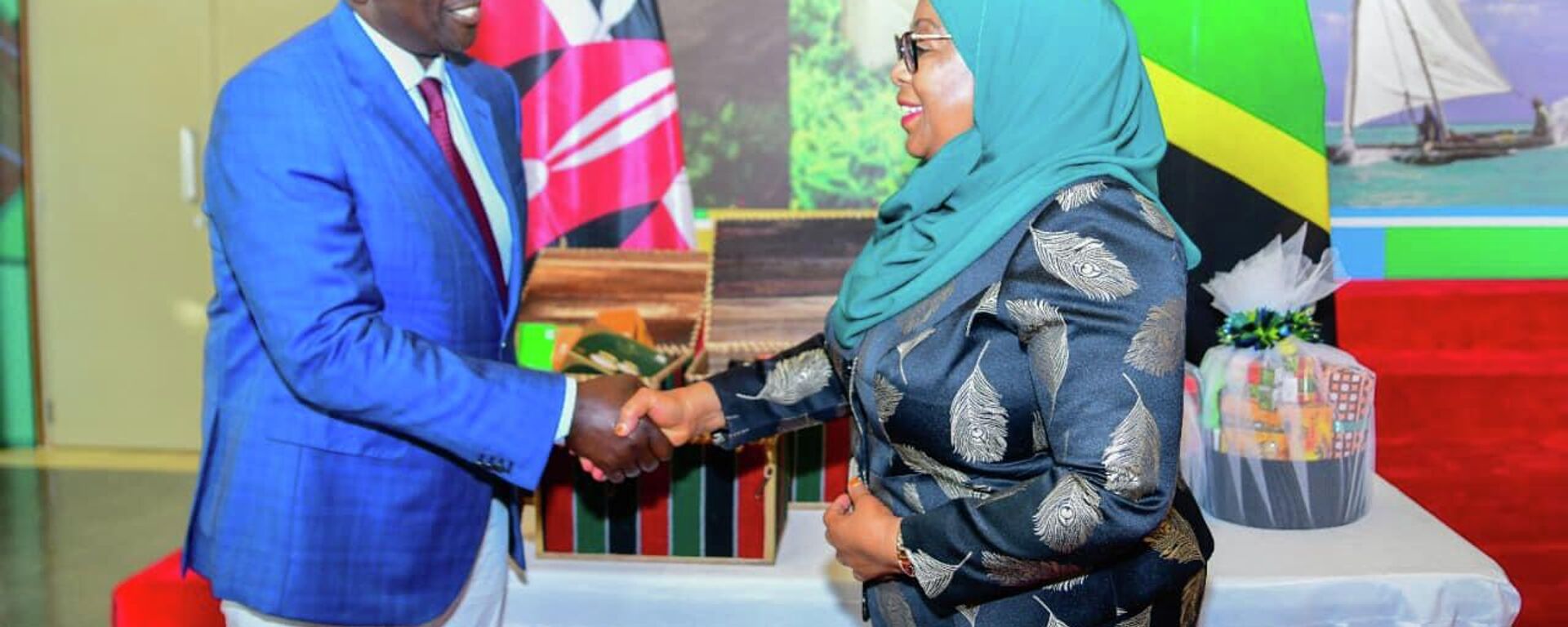
10 October 2022, 20:22 GMT
